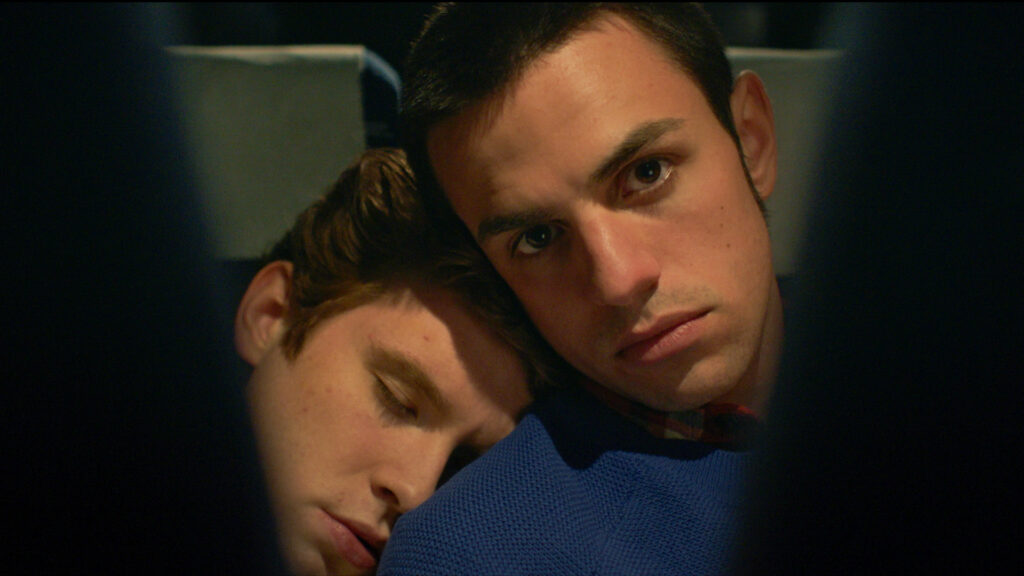
It’s human to treat a relationship as an adventure. It’s a rare thrill to navigate without knowing the nature of an equation. You may not be brave enough to say things aloud. Because if you do so, it all might come crashing down. In a fleeting moment in Duino, Matias tells Alexander about the greatest expression of love – you look at them in the eye and blink – like a cat would look at his owner. It is the complex ties between these two gents spanning across decades that the story dissects gently.
Juan Pablo Di Pace and Andrés Pepe Estrada’s film, remarkably, is a family fare. It has families and it is made for family viewing. The love that blooms (or rather doesn’t) between Matias and Alexander is always on the peripheries. The emotions never whirl to form a cyclone. As is perhaps the norm in many gay romances, Duino is decidedly non-explicit. Aside from that, there’s also a family’s perspective that we get about being gay. In the film’s most gutting sequence, three characters weep. Matias weeps for his lost love, his mother laments for having stripped him of his individuality, and his father expresses regret for not having manned up in the right sense.
Di Pace (also the lead actor in the grown-up phase) and Estrada put together a narrative that swings between events that take place in the ‘90s and the present day. The undercurrent is intense and the chemistry might rip apart from the wildest of physical romances. Duino, somehow, is too happy to remain in its anticipatory tone.
The leads who become instant best friends (Santiago Madrussan and Oscar Morgan) grow estranged over a reason. Duino refuses to over-examine the connection through the points of view of both characters. Alexander, who is the object of Matias’ attention, never becomes the subject. The film is from Matias’ point of view – to the extent that we wish Alexander had realized his friend’s invisible caresses and their companionship had better communication.
ALSO READ: ‘Call Me By Your Name’ review – a screenwriter’s triumph
Speaking of the latter, one of the film’s exquisite characters is Alexander’s sister (Julia Bender and Krista Kosonen) whose interactions with Matias are beautifully imagined and filmed. The photoshoot in the woods is soft and sexy. Lastly, the bond between the families feels warm and the film’s large-heartedness adds to making them come out as real.
Among the aspects I had trouble agreeing with are the characters – all essayed by superb actors – not resembling each other so much in their young and older selves. I would also have preferred a more linear storytelling pattern considering this trait of Duino. Then there’s the film’s language problem – which isn’t exactly a problem as the characters belong to different ethnicities – which creates confusion as it oscillates back and forth between English and Spanish. It is the filmmakers’ choice to keep its language entangled but it does add a layer of complexity in the dialogue-heavy film. The present-day portions where Di Pace struggles to complete a film he is working on never turn out as interesting as the 1997 chapter.
Minor hiccups aside, Duino is a treat to those who love good, old-fashioned romances with jealousies, separations, yearnings, and a lot of talking. It is the kind of film you would love to go back and revisit every detail. The soundtrack (Kjartan Dagur Holm and Sindri Már Sigfússon) radiates soul and the camera (DOP: Devin Doyle) makes love to the lush locales with the 90s props filling the frames with color. As Duino tiptoed towards a satisfying finale, my search for a divine romance at the 36th Annual New York LGBTQ+ Film Festival ended.
Rating: ★★★ 1/2

